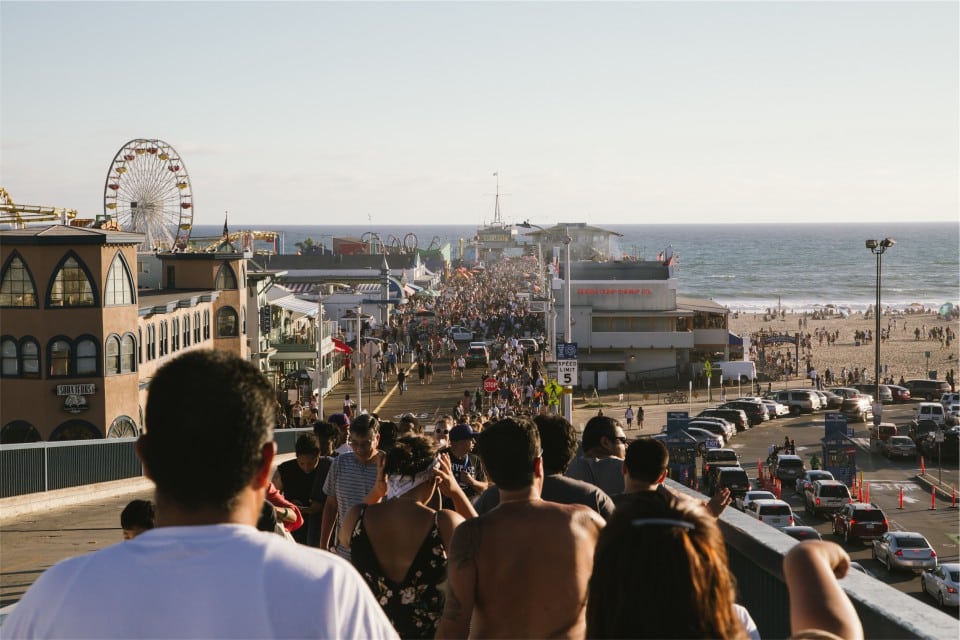
What kind of events can you hold?
- Industry Meet and Greet
- 101 Education
- Charity Fundraiser
- Subject Matter Meetup
- Topical Presentation
- Lunch andLearn
- Coffee Club
- Seminar
- Whatever. I suggest some sort of beverage, snack or food item be made available though whatever kind of event you hold.
Before The Event: Building Links & Evergreen Content

What kind of event? Every industry and business can feasibly have an excuse to host an event. Of course, the more obscure your industry the less potent it will be at the event itself. Can you imagine the “absolute crowds” of people interested in waste oil heaters or E&O insurance? But just because you can’t pack an auditorium doesn’t mean that you shouldn’t use events as a marketing strategy.
This is because you can actually use events to create long lasting content for your niche and gain links to your site in one fell swoop.
Before The Event: Leverage Event Schema
Well before you are planning out whether you can host the event onsite or at a 3rd party venue you should be creating a page for this event. You should plan on this page sticking around after the event actually occures because it’s where you’re going to post pictures and resources that you create from the event.
Do not forget to add schema markup. Here’s the guide from Built Visible I always refer to when it comes to implementing schema inline, or you can attempt to digest Mike Arnesen’s JSON directives for deploying Schema via Tag manager.
<div itemprop="event" itemscope itemtype="http://schema.org/Event">
<a href="[event url]" itemprop="url">
<span itemprop="name">[event name]</span>
</a>
<span itemprop="location">[event location]</span>
<meta itemprop="startDate" content="[date in ISO format e.g. 2013-03-16]">
</div>
<div itemprop="event" itemscope itemtype="http://schema.org/Event">
<a href="[event url]" itemprop="url">
<span itemprop="name">[event name]</span>
</a>
<span itemprop="location">[event location]</span>
<meta itemprop="startDate" content="[date in ISO format e.g. 2013-03-16]">
</div>Remember when you create this page to be at a simple to use URL, and it can expand as you add the content from the event itself.
Before The Event: Leverage Event Aggregator Sites
There’s a whole industry devoted to giving people places to go and things to do. Eventbrite and Eventful are just two examples of large data aggregating sites that syndicate out events to dozens even hundreds of sites and apps.
There are even more niche sites built around specific cities. With a few quick queries around your city+events you can uncover dozens of sites where you can build an entry for your event and add a link to the page you created for the event. The best part is they will syndicate to trusted local news sites and others organically with many of them passing on value with followed links.
During The Event: Connecting with Customers
Even if your event is based around you presenting a slide deck, you will find there are real opportunities by simply talking to your attendees. They are not sales targets, they are living breathing data points. By treating any and all attendees with respect and a friendly attitude you can get honest and sometimes upsetting feedback. It’s OK if you don’t get all glowing reviews, you want to find out pain points you can eliminate, hopefully with targeted content or changes to product.
During The Event: Generating Event Related Content
Part of creating content from an event is as simple as point and shoot. Assign at least one person to take photos of the event, they don’t absolutely have to be Liebewitz.
Follow-up with any other employees who attended and have them give you a written summary on what happened at the event, who they interacted with and what companies those people represented. If you can post to social media before and during the event and consider messaging known attendees.
After The Event: Access Existing Audiences With Egobait
Armed with the photos and notes update the event page from an upcoming perspective to a detailed account of the event. Once that’s done, outreach to those who attended and let them know all of the photos and resources from the event are there. Boom. You just got your attendees to do your followup marketing for you, giving you access to their audience, and likely some links as well.
Have you hosted an event for your own business or leveraged one for your clients? My agency hosts an SEO meet up in Nashville monthly and it has been a long term success for us, let me know if you have had a similar experience or have any solid advice on the approach.

